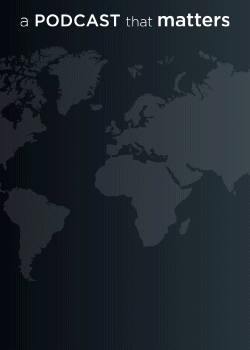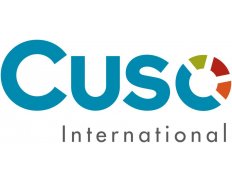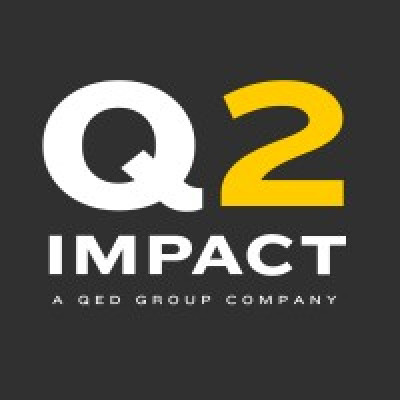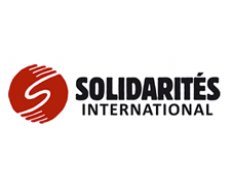Details
Description
Background
UNDP is committed to achieving workforce diversity in terms of gender, nationality and culture. Individuals from minority groups, indigenous groups and persons with disabilities are equally encouraged to apply. All applications will be treated with the strictest confidence.
UNDP does not tolerate sexual exploitation and abuse, any kind of harassment, including sexual harassment, and discrimination. All selected candidates will, therefore, undergo rigorous reference and background checks.
Job Purpose and Organizational Context
Jamaica’s international human rights commitments are reflected nationally in a Charter of Rights and Freedoms, which is embedded within the Constitution and other laws and policies, to protect women, children and other vulnerable groups from discrimination and gender-based violence. The country’s legislative framework is thus supportive of rule of law and a fair and equitable justice system. These rule of law priorities are captured in Vision 2030 and reflect the country’s policy and planning alignment with the Sustainable Development Goals.
Despite Jamaica’s strong constitutional and legislative foundation, the effectiveness of the justice system has been stymied by institutional, resource and cultural challenges. The current strategic plans of the Ministry of Justice and the Judiciary highlight several institutional, technological and policy initiatives to be implemented in the short, medium and long term to systemically address these challenges towards ensuring improved efficacy and efficiency of the justice system. Importantly, these initiatives build on previous successes while anticipating the future needs of justice sector. Notwithstanding, there remain significant socio-economic challenges which affect people’s experience of justice services. These socio-cultural issues include, but are not limited to, real and perceived barriers emerging from inadequacies in the accessibility of justice services to vulnerable groups such as rural populations and persons living with disabilities, and limited capacity to protect and fulfill the rights of children in contact and in conflict with the law. At present, the Ministry of Justice’s policies, strategies, and data gathering capacity are inadequate, resulting in challenges in tailoring justice services to fully meet the needs of the most vulnerable, ensure equitable social justice outcomes, or mainstream gender equity considerations.
In addition to these issues, one of the causal factors for the high demand for justice services and the current high case backlog is the country’s high crime rate. Jamaica has one of the highest crime rates in the Latin American region and in the world. Improved efficiency in the delivery of justice is therefore hinged on a reduced demand for justice services and expansion of the scope of services provided. The Ministry of Justice has promulgated a suite of alternative justice services (AJS) such as mediation and other alternative dispute resolution methods, restorative justice, child diversion and other services, in response to the identified needs. These are designed, in part, to reduce the inflow of criminal and civil disputes into courts. However, lack of knowledge and understanding among members of the public has limited their effectiveness and uptake. These challenges collectively undermine social justice and can have a deleterious effect on public perceptions of and interactions with the justice sector, despite the realities of ongoing reforms.
The Social Justice (SO-JUST) Project is a 7-year project which aims to use an equitable human rights and gender responsive approach, targeting systemic change within the processes of the Ministry of Justice, its departments and agencies, the Courts, the Office of the Director of Public Prosecutions and other state and non-state partners to improve social justice in Jamaica. The project aims to support the Government of Jamaica in increasing access to justice for vulnerable and disadvantaged groups and strengthening the capacity of the justice system to implement gender-responsive social justice policies and programmes. It reflects and integrates the four pillars of social justice, which are equity, access, participation, and rights, and adopts a gender-responsive approach. It will provide the justice system with enhanced training and human resource development capacity and records and case management strategies required to sustain reforms. To achieve the defined programme goals, targets and effective delivery and quality services, a dedicated Project Management Unit (PMU) will be established comprising Project Manager, Project Procurement Associate, Finance & Administrative Associate and Monitoring & Evaluation Associate.
Under the overall guidance of the Programme Specialist and direct supervision of the Project Manager – Social Justice Project , the Monitoring & Evaluation Associate will support pprogrammatic monitoring, evaluation, and reporting with a focus on the SO-JUST Project.
She/he will work in close collaboration with the Project Management Unit (PMU), UNDP’s programme and operations team, other UN agencies, Government officials, multi and bi-lateral donors and civil society ensuring UNDP’s successful achievement of the outputs of the project. The Monitoring and Evaluation Associate will promote a collaborative, client-oriented approach, ensuring integration across functional areas within the PMU and support the integration of capacity building and institutional strengthening activities.
Responsibilities: Within delegated authority, the Monitoring & Evaluation Associate will be responsible for the following key functions:
Effective management of the monitoring and evaluation processes, focusing on achieving results
Facilitation of knowledge building and sharing, focusing on achieving results
Strategic partnerships and implementation of the resource mobilization strategy
Duties and Responsibilities
1. Effective monitoring and evaluation processes of programme with focus on So-JUST Project - Effective management of the monitoring and evaluation processes for the Programme focusing on achieving the following results:
Ensure the application of a results-based management (RBM) approach for planning and monitoring of the project.
Lead the refinement of results frameworks (as applicable) and monitoring of project results ensuring alignment with national, regional and global objectives (including the SDGs) and donor requirements.
Lead the collaborative design and implementation of monitoring plans, including data collection methods and methodologies to measure intervention impact, participatory and evidence-based monitoring, and evaluation (M&E) methods to promote ownership and measure change among target groups.
Support decentralized project evaluations: providing technical guidance during evaluation design, quality assurance during implementation and project closure and support the use of results for course corrections.
Support the development and/or adaptation of research and monitoring tools (e.g. for data collection, analysis and visualization) which capture disaggregated information on various population and vulnerable groups, including by age, gender, geography, income, disability, etc. as relevant.
Conduct monitoring field visits to ensure timely and quality implementation of programme.
Map and assess the quality of existing official data sources, the methods of collecting them, and ensure that data quality standards are monitored and met and propose approaches to address identified gaps to ensure data quality.
Support annual work planning processes ensuring alignment of annual work plans and activity level indicators with project output and outcome level indicator milestones and targets.
Support the Project Manager in updating project progress, achievement of targets, risk logs, lessons learned etc. using Quantum (UNDP’s ERP) in accordance with UNDP procedures.
Collect data and report on the contribution of Project to the achievement of UNDP Strategic Plan and Country Programme Document outcomes and outputs.
Ensure mainstreaming of gender equality in all aspects of M&E and reporting, promotion of a safe and enabling environment free of any kind of discrimination and abusive behaviour, and gender-responsive communications based on corporate principles.
Under the guidance of UNDP’s M&E Analyst, support quality assurance processes (audits, spot checks, micro assessments etc) and follow up on timely implementation of recommendations.
Support timely and quality input to national and UN corporate reporting platforms, reports and plans including but limited to the Integrated Work Plan, Results Oriented Annual Reporting and the International Aid Transparency Initiative.
2. Ensure provision of high-quality support to Knowledge Management and Capacity Building - Quality technical assistance and capacity development to stakeholders and facilitation of knowledge building and knowledge sharing focusing on achievement of the following results:
Support the integration of lessons learned from evaluations, audits, primary and secondary research into the MCO’s knowledge management system.
Promote the shared responsibility of the M&E function among all staff members and partners through communication, training, and other knowledge sharing activities.
Support in building capacities of Project staff and stakeholders on best practices in RBM, UNDP rules and guidelines on project cycle, UNDP Strategic objectives, and interlinkages.
Support the integration of the Gender-Based Analysis Plus (GBA+) methodology in planning, monitoring, and implementation.
Collaborate with other UN agencies, government agencies, NGOs, and other partners on monitoring and evaluation issues; keep abreast of latest development and professional norms, standards, tools and methodologies.
Perform other functions as requested by management.
3. Strategic partnerships and implementation of the resource mobilization strategy - Provides support in creation of strategic partnerships and implementation of the resource mobilization strategy focusing on achievement of the following results:
Support donor analytics research, including the creation and updating of a donor database.
Support data tracking and reporting on resource mobilization targets.
Core Competencies:
Achieve Results: LEVEL 1: Plans and monitors own work, pays attention to details, delivers quality work by deadline.
Think Innovatively: LEVEL 1: Open to creative ideas/known risks, is pragmatic problem solver, makes improvements.
Learn Continuously: LEVEL 1: Open minded and curious, shares knowledge, learns from mistakes, asks for feedback.
Adapt with Agility: LEVEL 1: Adapts to change, constructively handles ambiguity/uncertainty, is flexible.
Act with Determination: LEVEL 1: Shows drive and motivation, able to deliver calmly in face of adversity, confident.
Engage and Partner: LEVEL 1: Demonstrates compassion/understanding towards others, forms positive relationships.
Enable Diversity and Inclusion: LEVEL 1: Appreciate/respect differences, aware of unconscious bias, confront discrimination.
Cross-Functional & Technical competencies:
Business Management
Results-based Management:
Ability to manage programmes and projects with a focus at improved performance and demonstrable results.
Monitoring:
Ability to provide managers and key stakeholders with regular feedback on the consistency or discrepancy between planned and actual activities and programme performance and results.
Risk Management:
Ability to identify and organize action around mitigating and proactively managing risks.
Communication:
Ability to communicate in a clear, concise and unambiguous manner both through written and verbal communication; to tailor messages and chose communication methods depending on the audience.
Ability to manage communications internally and externally, through media, social media and other appropriate channels.
Business Direction & Strategy
Knowledge Generation:
Ability to research and turn information into useful knowledge, relevant for context, or responsive to a stated need.
Negotiation and Influence:
Ability to reach an understanding, persuade others, resolve points of difference, gain advantage in the outcome of dialogue, negotiates mutually acceptable solutions through compromise and creates ‘win-win’ situations.
2030 Agenda: Engagement and Effectiveness:
Effectiveness:
Programmatic Risk Management & Analysis.
Required Skills and Experience
Education:
Secondary Education is required.
University Degree in in Economics, Statistics, Sociology, Demography, or relevant field would be desirable, but it is not a requirement.
Required Experience:
A minimum of 7 years (with secondary education) or 4 years (with Bachelor’s degree) of progressively relevant experience in the design and implementation of Results Monitoring and Evaluation Systems required.
At least 4 years of experience preparing monitoring reports for complex projects is required.
Experience in the use of computers and office software packages, experience in handling of web-based management systems.
Proficiency in English (both written and oral).
Desired experience:
At least 3 years’ experience working with ministries, national or local institutions is an asset.
At least 3 years’ experience using Statistical software (SPSS, MATLAB, SAS, other), or similar data analysis packages to analyze data is an advantage.
At least 3 years’ experience in building capacity of national entities in the area of Monitoring, Evaluation and Reporting will be asset.
Minimum 3 years of progressive experience in primary and secondary research, and data analysis is an asset.
Demonstrated experience in working with justice sector stakeholders will be an asset.






